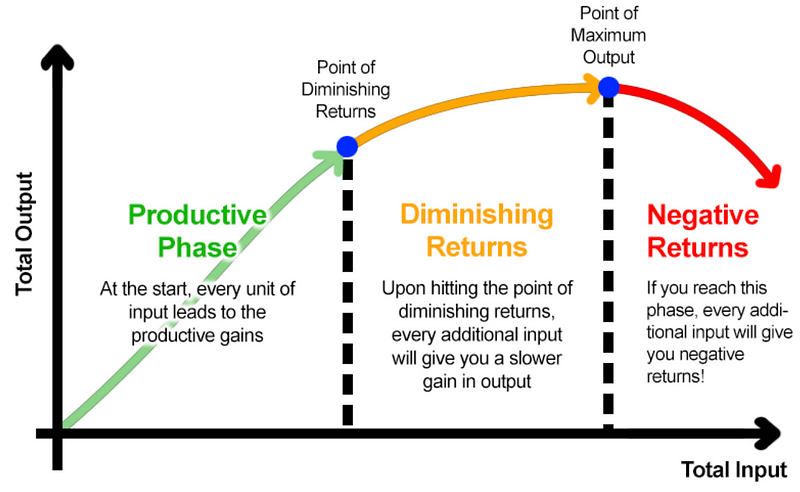Rethinking the High Mileage Myth: Quality Over Quantity in Running
Written on
Understanding the High Mileage Fallacy
High mileage is often perceived as essential for becoming an exceptional runner; however, this notion is somewhat misleading. It's merely one aspect of a comprehensive training regimen, with the right balance being unique to each individual. Unfortunately, there's a prevalent belief that to be considered a 'runner,' one must achieve a certain weekly mileage, otherwise, their efforts are deemed ineffective.
With the rise of social media and fitness tracking platforms, we have unprecedented access to the routines of elite athletes and the advice of coaches. While this influx of information can be beneficial, it can also lead to unrealistic comparisons. As a kinesiologist, trainer, and fellow running enthusiast, I can affirm that this overwhelming amount of information can be both advantageous and detrimental. It’s crucial to remember that what works for one athlete may not be suitable for you.
To assist you in navigating your running journey, I want to take a moment to debunk the myth surrounding high mileage. This aims to restore balance and redirect our focus toward quality rather than sheer quantity.
The High Mileage Fixation Must Change
Before diving deeper, I want to clarify that this message primarily targets recreational runners. If you are an experienced or elite-level runner, my advice may not resonate as strongly for various reasons that you likely understand given your expertise.
Additionally, I am not a professional athlete or coach. I’m simply a trained kinesiologist and an avid runner who has a solid understanding of exercise physiology and training principles, thanks to my experiences with more knowledgeable peers.
It's essential to recognize that there are no absolute rules in running. What benefits one person may not suit another, depending on factors such as age, fitness level, and environment. Thus, I encourage you to consider the following insights with an open mind and consult a coach who can tailor a plan to your individual needs.
Now that we've clarified this, let’s delve into the core of the discussion!
Unless you've been completely unaware, you may have heard that the marathon world record was recently shattered in Chicago by Kelvin Kiptum, a 23-year-old from Kenya, who reportedly runs up to 186 miles (300 kilometers) weekly. Yes, that's accurate—186 miles.
While his remarkable achievements this year, including victories at two World Marathon Majors, speak for themselves, there’s a lot that often goes unnoticed by everyday runners. Kiptum is a professional; running is his career. He has access to top-tier coaching, specialized healthcare, prime training environments, and ample time for recovery.
The key takeaway here is that Kiptum is an outlier, and we should not compare ourselves to him.
Many of us must recognize that even professional athletes understand that simply logging a certain weekly mileage does not guarantee success. The best runners pay attention to their bodies, taking rest days or adjusting their training as needed. Even when every second counts, they prioritize the quality of their workouts and recovery over sheer volume. This approach is what sets them apart.
In many cases, the high mileage seen in elite athletes results from a combination of quality training sessions and necessary recovery periods.
If this holds true for elite competitors, it reinforces the idea that while volume is important, it should not be viewed as the sole metric of success. To put it another way, there’s a concept known as diminishing returns. Transitioning from zero to ten miles per week can significantly boost your aerobic fitness; however, as you increase your mileage, the benefits tend to diminish until you hit a point where additional mileage may lead to injuries or burnout.

This tipping point varies for each individual, but it often arises when runners become fixated on the 'high mileage or nothing' mindset, neglecting their bodies' signals and failing to maintain balanced training. When this happens, the relentless pursuit of mileage can hinder rather than enhance performance.
As recreational runners, we must remember that our focus should be on enjoyment rather than competition. Ultimately, volume serves as a means to facilitate high-quality workouts that build strength, endurance, and mental resilience. While it's a vital aspect of running, it should never be regarded as the end goal.
If you ensure that you’re completing the necessary workouts for your distance, emphasizing strength training, treating easy days as they should be, and allowing for adequate recovery, you can still perform exceptionally on race day. For some, peak performance may come at 35 miles, while others may excel at 100 miles.
This is the beauty of running.
Finding your optimal mileage will likely involve some trial and error, alongside a willingness to learn from the experiences of others. I challenge you to strike a balance between applying valuable advice from others and listening to your body, fitness, and lifestyle needs.
Mastering this balance, alongside maintaining core principles of dedication and consistency, can elevate your running to new heights. Additionally, focusing on your own journey will enhance your satisfaction with both your training and overall health.
In Conclusion
I hope this brief reminder proves useful as you navigate your own running path. Balancing rigorous training with productive practices remains a challenge for endurance athletes, but prioritizing quality workouts and recovery will always be a solid foundation. Wishing you the best in your training endeavors!
You’ve got this.
-David Liira, Kinesiologist
Chapter 2: The Impact of Social Media on Running
In the video titled "The Biggest Myth in Speedrunning History," the discussion revolves around common misconceptions in the running community. It explores how the allure of high mileage can mislead runners, emphasizing the importance of understanding personal limits and training quality.
Chapter 3: Conspiracy Theories and Their Influence on Fitness
The video "Jewish Space Lasers, Conspiracy Theories, and Antisemitism" sheds light on how misinformation can permeate various aspects of society, including fitness culture. It highlights the need for critical thinking and discernment when consuming fitness advice from various sources.